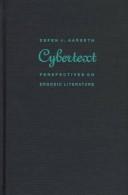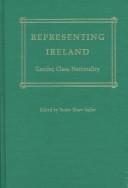| Listing 1 - 4 of 4 |
Sort by
|
Book
ISBN: 3447039353 Year: 1997 Publisher: Wiesbaden Harrassowitz
Abstract | Keywords | Export | Availability | Bookmark
 Loading...
Loading...Choose an application
- Reference Manager
- EndNote
- RefWorks (Direct export to RefWorks)
Book
ISBN: 9012085012 9789012085014 Year: 1997 Volume: 52 Publisher: Den Haag : Sdu,
Abstract | Keywords | Export | Availability | Bookmark
 Loading...
Loading...Choose an application
- Reference Manager
- EndNote
- RefWorks (Direct export to RefWorks)
Dutch literature --- Literature --- Canon (Literature) --- Congresses. --- History and criticism --- Theory, etc. --- -Dutch literature --- -Literature --- -#SBIB:309H515 --- #A9709A --- Belles-lettres --- Western literature (Western countries) --- World literature --- Philology --- Authors --- Authorship --- Flemish literature --- Congresses --- -Congresses --- -Theory, etc --- Literatuurwetenschap, literatuursociologie --- Theory, etc --- #A9709A. --- #SBIB:309H515 --- -Literatuurwetenschap, literatuursociologie. --- -Congresses. --- -Theory, etc. --- -#A9709A --- Literature - History and criticism - Theory, etc - Congresses --- Canon (Literature) - Congresses. --- Dutch literature - History and criticism - Congresses

ISBN: 0801855799 0801855780 Year: 1997 Publisher: Baltimore ; London : The Johns Hopkins University Press,
Abstract | Keywords | Export | Availability | Bookmark
 Loading...
Loading...Choose an application
- Reference Manager
- EndNote
- RefWorks (Direct export to RefWorks)
Can computer games be great literature? Do the rapidly evolving and culturally expanding genres of digital literature mean that the narrative mode of discourse-novels, films, television series-is losing its dominant position in our culture? Is it necessary to define a new aesthetics of cyborg textuality?In Cybertext, Espen Aarseth explores the aesthetics and textual dynamics of digital literature and its diverse genres, including hypertext fiction, computer games, computer-generated poetry and prose, and collaborative Internet texts such as MUDs. Instead of insisting on the uniqueness and newness of electronic writing and interactive fiction, however, Aarseth situates these literary forms within the tradition of "ergodic" literature-a term borrowed from physics to describe open, dynamic texts such as the I Ching or Apollinaire's calligrams, with which the reader must perform specific actions to generate a literary sequence.Constructing a theoretical model that describes how new electronic forms build on this tradition, Aarseth bridges the widely assumed divide between paper texts and electronic texts. He then uses the perspective of ergodic aesthetics to reexamine literary theories of narrative, semiotics, and rhetoric and to explore the implications of applying these theories to materials for which they were not intended.
Discourse analysis, Literary --- Literature and technology --- Communication and technology --- 82.080 --- #SBIB:309H515 --- #SBIB:309H511 --- Stilistiek --- Literatuurwetenschap, literatuursociologie --- Verbale communicatie: algemene pragmatiek, stilistiek en teksttheorie, discoursanalyse --- Communication and technology. --- Literature and technology. --- Lerarenopleiding --- Data processing. --- (vak)didactiek talen --- (vak)didactiek talen. --- 82.080 Stilistiek --- Discourse analysis, Literary. --- Industry and literature --- Technology and literature --- Technology --- Literary discourse analysis --- Rhetoric --- Literary style --- Technology and communication --- Data processing

ISBN: 081301543X Year: 1997 Publisher: Gainesville, Fla University Press of Florida
Abstract | Keywords | Export | Availability | Bookmark
 Loading...
Loading...Choose an application
- Reference Manager
- EndNote
- RefWorks (Direct export to RefWorks)
English literature --- Gender identity --- Irish literature --- Literature and history --- National characteristics, Irish --- National characteristics, Irish, in literature --- Social classes --- #SBIB:309H515 --- Class distinction --- Classes, Social --- Rank --- Caste --- Estates (Social orders) --- Social status --- Class consciousness --- Classism --- Social stratification --- Irish national characteristics --- History and literature --- History and poetry --- Poetry and history --- History --- Sex identity (Gender identity) --- Sexual identity (Gender identity) --- Identity (Psychology) --- Sex (Psychology) --- Queer theory --- British literature --- Inklings (Group of writers) --- Nonsense Club (Group of writers) --- Order of the Fancy (Group of writers) --- Irish authors&delete& --- History and criticism --- Literatuurwetenschap, literatuursociologie --- Ireland --- Irish Free State --- Foreign public opinion. --- In literature. --- Irish authors --- Gender dysphoria
| Listing 1 - 4 of 4 |
Sort by
|

 Search
Search Feedback
Feedback About UniCat
About UniCat  Help
Help News
News